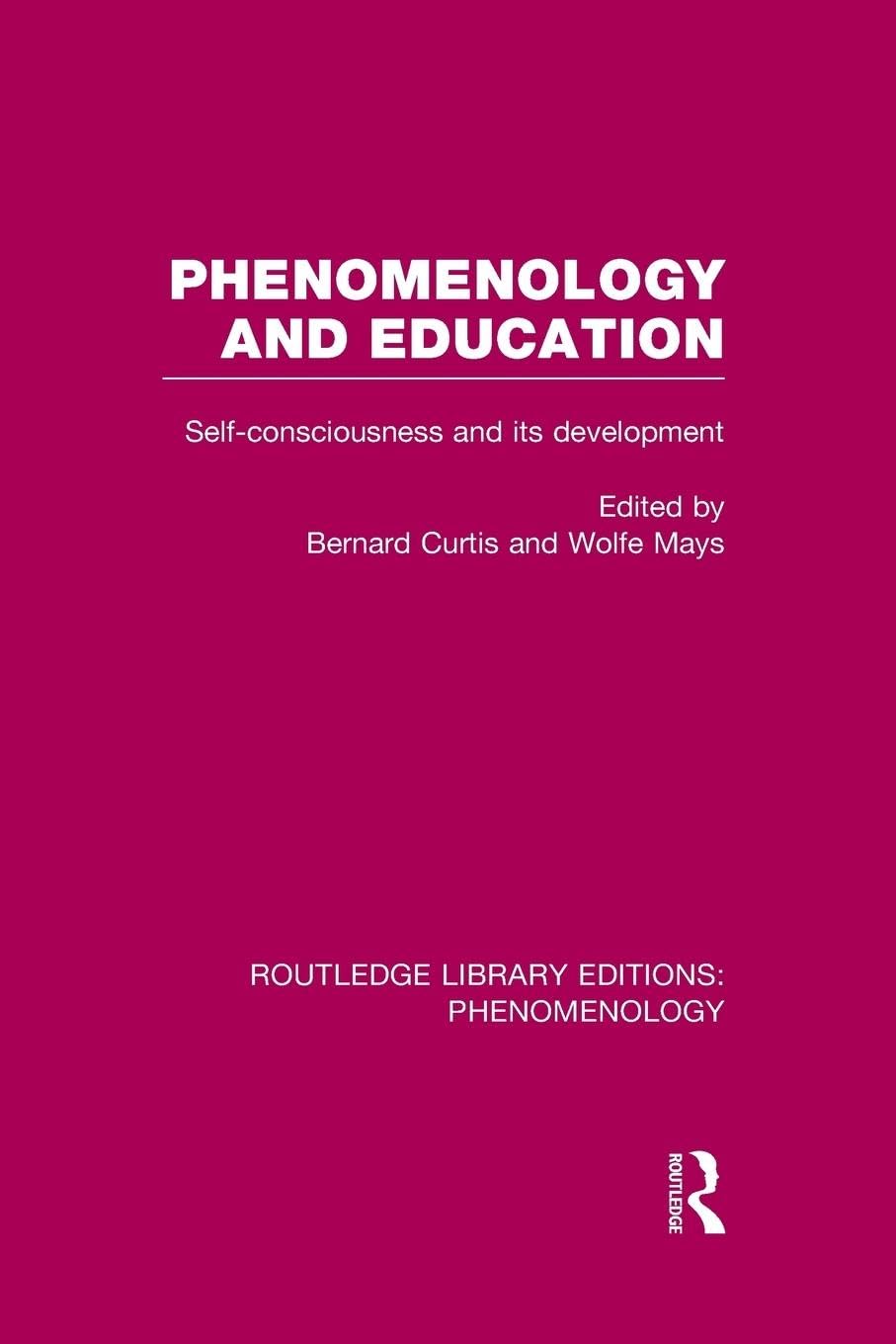Phenomenology and Education: Self-consciousness and its Development (Routledge Library Editions: Phenomenology)
Phenomenology and Education: Self-consciousness and its Development (Routledge Library Editions: Phenomenology) is backordered and will ship as soon as it is back in stock.
Couldn't load pickup availability
Genuine Products Guarantee
Genuine Products Guarantee
We guarantee 100% genuine products, and if proven otherwise, we will compensate you with 10 times the product's cost.
Delivery and Shipping
Delivery and Shipping
Products are generally ready for dispatch within 1 day and typically reach you in 3 to 5 days.
Book Information:
• Author: Bernard Curtis
• Publisher: Taylor & Francis Ltd
• Edition: 1
• Binding: Paperback
• Number of Pages: 184
• Release Date: 21 December 2015
• EAN: 9781138978355
• Package Dimensions: 9.1 x 6.1 x 0.5 inches
• Languages: English
About The Book:
This insightful volume by Bernard Curtis brings a phenomenological perspective to education, offering a rich stimulus for educational philosophy. Originally published in 1978, the essays delve deeply into themes from phenomenology and existentialism, focusing on the development of self-consciousness and its influence on educational thought.
Curtis examines Kierkegaard’s quest for personal truth and the role of imagination, alongside explorations of cognitive development influenced by Piaget and Merleau-Ponty. The book thoughtfully distinguishes between rote memorization and meaningful remembering as key to self-image formation. It further investigates the dynamics between children and teachers, and the impact of social isolation on childhood development, referencing Sartre’s own experiences.
Ideal for philosophers, psychologists, sociologists, educators, and anyone interested in the philosophical underpinnings of education, this collection presents profound reflections on how understanding self-consciousness can shape educational theory and practice.





